When Americans recall Jimmy Carter’s legacy, we often think of his piety, illustrated by his years of teaching Sunday school at his Baptist church and his tireless labor for nonpartisan charities such as Habitat for Humanity. Carter, who died Sunday—three months after his 100th birthday—was eager to talk about his faith and about his personal “born again” experience. He shattered a longstanding tradition of presidents, dating back to George Washington, who generally didn’t discuss their faith in public. Indeed, Carter set a new precedent for presidential aspirants: Since Carter, Christian voters have expected candidates to talk openly about their religion, even if they didn’t have much of substance to say.
And yet, his passing also reminds us of a time when many white evangelicals still voted for Democrats. For all his personal Christian devotion, Carter never captured the hearts of white evangelicals the way Republican presidents have since Ronald Reagan in 1980. That Carter failed to do so is one of his most perplexing legacies.
The fact that Carter and Democrats could not hold the allegiance of evangelicals—particularly Southern evangelicals—in 1980 was a terrible (though not insurmountable) loss for Democrats’ national prospects. What went wrong? What we might call the Carter model—personal commitment to church, the Bible, and Christian values, combined with libertarian views of law and public morality—was highly disappointing to most evangelical voters. They wanted action on conservative moral issues, even if that action came from politicians who did not manifest Carter’s private devotion to church, family, and the Bible.
When Carter first ran in 1976, there seemed little doubt that Southern evangelicals, especially Carter’s fellow Baptists, would support him. Some certainly did. Oklahoma Baptist pastor Bailey Smith, a future president of the Southern Baptist Convention (SBC), exclaimed at the denomination’s 1976 meeting that America needed a “born-again president.” He didn’t want to mention his preferred candidate by name, Bailey joked, but “his initials are the same as Our Lord's.” At the same assembly, however, Gerald Ford became the first sitting president to address the SBC.
Thus, the trajectory of the white evangelical vote was uncertain in 1976. So was the future of the SBC, which was Carter’s denomination at the time. In fact, Carter’s presidency would become one of the chief catalysts of the SBC’s transformation into a uniformly conservative denomination.
The SBC had been the nation’s largest Protestant group since the mid-20th century, and it was a surprisingly diverse organization, both theologically and politically. Despite his evangelical testimony and personal adherence to the Bible, Carter was part of a small but influential group of SBC moderates and liberals. These SBC progressives affirmed abortion rights in the wake of the Roe v. Wade decision in 1973, and they supported the Equal Rights Amendment (ERA), which sought to enshrine legal equality between the sexes in the Constitution.
Carter’s SBC was “evangelical” in the sense that it supported evangelism, Christian missions, and the special authority of the Bible, along with Baptist distinctives such as the baptism of Christian believers instead of infants. But SBC pastors and professors were not in agreement about the “inerrancy” of scripture. Was the Bible entirely without error, whether of facts or morals? Southern Baptists gave a range of answers. Neither did SBC members agree about the role of women, especially in the home and in the church. Were married women to submit to their husbands, as Paul’s letters in the New Testament instructed? Were women eligible to be senior pastors, despite the historical opposition across most Christian traditions to that practice?
Most Protestant denominations had gone through battles over such cultural and theological issues in the early 20th century. Those battles led “mainline” denominations such as Ford’s Episcopal church to accept liberal theology and social views. A reckoning in the SBC over the Bible and liberalizing culture was delayed by a half century, however. The war for the SBC’s future began in 1979, and ended with what liberal critics call the “fundamentalist takeover” of the SBC. Traditionalists prefer to label it the “Conservative Resurgence.”
Parallel to the developments in the SBC, the Southern political landscape was changing, too. From the Civil War to the 1960s, a strong majority of white Southerners—evangelical or not—had voted Democratic. In many races across the “Solid South,” the Democratic primary was the key contest, not the general election: The candidate nominated by Democrats would almost always win.
Their hold on white Southerners (who often deprived black Southerners of the right to vote prior to the 1960s) began to erode in the mid-20th century, partly due to anger over civil rights reform. Sen. Strom Thurmond of South Carolina, a Southern Baptist and segregationist, switched to the Republican Party in 1964 in order to back Barry Goldwater, the Republican candidate for president.
Carter would provoke some Southern evangelicals, too, when his Internal Revenue Service in 1978 suggested that it might revoke the tax exemption of all-white private schools that had sprung up when public schools began integrating in the 1960s and ‘70s. Some historians argue that the threat against “segregation academies” was one of the chief concerns animating the religious right’s backlash against Carter, especially for Southerners such as Jerry Falwell Sr., the founder of the Moral Majority organization. Falwell operated one of these schools.
By 1968, Richard Nixon and independent segregationist candidate George Wallace of Alabama were dividing the South’s votes, including those of Southern evangelicals. Nixon’s landslide victory in 1972 heralded a new Republican “Solid South.” But Nixon’s resignation over Watergate in 1974, the turmoil over America’s exit from Vietnam, and Carter’s candidacy as a Georgia Democrat, brought the white South back into play for Democratic strategists. Northern evangelicals had largely supported Republicans since at least the 1950s, when the evangelist Billy Graham gave his support to Dwight Eisenhower as Americans’ best bet to fight the menace of Soviet communism.
Thus, the 1976 election was a test of whether Democrats could retake the South in a presidential election. Carter proved to be just the man for the job, as he swept virtually the whole South on his way to a narrow victory over Ford. His one major misstep with evangelical voters was an ill-judged interview with the soft-core pornographic magazine Playboy. Carter thought speaking with Playboy might reassure non-evangelicals that he was no prude. But it soured some evangelicals on his candidacy and gave Christian critics ammunition to charge him with being a hypocrite. In the end, Carter seems to have roughly split the national evangelical vote with Ford.
Democratic nominees ever since would love to perform as well as Carter did with evangelicals in 1976. But Carter’s inability to win a clear majority of white evangelicals foreshadowed trouble to come. Evidence suggests that evangelical support for the Republican nominee dropped precipitously from 1972 to 1976, with 84 percent of evangelical voters choosing Nixon (compared to Nixon’s 61 percent of the total vote), but only 51 percent of evangelical voters supporting Ford (compared to Ford’s 48 percent total). From this perspective, Carter’s gains among evangelicals were a resounding success.
What happened to send evangelical support for Carter spiraling downward? One could cite a variety of concerns, many of them hardly exclusive to evangelicals. These included a troubled economy and Carter’s mishandling of the 1979 Iranian hostage crisis. But politically, the No. 1 thing that went wrong for Carter in 1980 was Republicans’ nomination of Ronald Reagan. His Christian bona fides were not as clear as Carter’s, but Reagan, the “great communicator,” had an uncanny ability to identify with people on a visceral level, and he won over evangelical audiences with pitch-perfect messages on the threat of communism and secular “humanism.”
Meanwhile, the pro-life cause and opposition to the ERA joined anticommunism as top issues for evangelicals. The Democratic Party of the 1960s had been more solidly pro-life than the Republican Party was. But in 1976, Republicans such as Reagan and Ford’s running mate Bob Dole realized that the abortion issue was a promising way for Republicans to attract more Catholic and evangelical voters, as feminists drove Democrats in a more pro-choice direction. Southern Baptists had a mixed reaction to Roe v. Wade, with even some SBC conservatives continuing to support abortion rights. But core evangelical outlets such as Christianity Today and the National Association of Evangelicals immediately condemned Roe as immoral. By the 1976 election, the Republican Party had emerged as the preferred choice for pro-life activists, even though Republicans sometimes seemed to do little more about the issue than making statements affirming the sanctity of unborn life.
Carter supported the ERA and abortion rights, and he appointed feminist activists in his administration. These included Sarah Weddington, one of the lead attorneys for “Jane Roe” in Roe v. Wade, as an assistant for women’s issues. In that capacity, Weddington led an all-out campaign to get the ERA ratified. That effort ultimately failed in the states, largely because of the opposition of conservative Christian women, such as the Eagle Forum’s Phyllis Schlafly. Carter likewise signaled political support for gay and lesbian activists, despite his personal opposition to homosexuality. Carter took a similar approach to abortion: He said he was personally opposed, but he did not support a constitutional amendment to overturn Roe v. Wade. Such libertarian stances, and his unwillingness to align personal Christian convictions with legal activism, were galling to conservative Christian voters.
During Carter’s presidency, conservative Southern Baptists were becoming more engaged on a range of cultural issues, including abortion. The popular evangelical writer Francis Schaeffer was arguably the person most responsible for galvanizing evangelicals on abortion, convincing many that abortion was tantamount to murder. The most influential Baptist persuaded by Schaeffer was Falwell Sr. After reading Schaeffer, Falwell began vociferously denouncing abortion in sermons and on his popular radio show. Under his leadership, the Moral Majority became the key religious right organization supporting Ronald Reagan and opposing Jimmy Carter. The same year saw the beginning of the Conservative Resurgence in the SBC. By 1980, the SBC finally passed a pro-life resolution after years of failed attempts. Carter would break ties with the SBC himself in 2000, citing the denomination’s opposition to ordaining women as pastors.
The reasons Carter lost to Reagan in 1980 are more complicated than white evangelicals’ fusion with the GOP. Still, if Carter had retained 50 percent of the evangelical vote nationally, instead of dropping into the mid-30s, the election would have been much closer. Carter likely would have captured additional Southern states beyond just Georgia and West Virginia. As it was, Reagan dominated the evangelical vote, garnering around 65 percent. More importantly, Reagan set a pattern that shows no sign of abating in 2024: Evangelical voters prize action on conservative cultural issues such as abortion. When forced to choose, a candidate’s personal piety is not the top concern for the majority of evangelicals.
This helps explain why Jimmy Carter, one of the most overtly devout presidents in American history, lost the evangelical vote. By contrast, thrice-married and often profane Donald Trump has twice been elected to the presidency with broad support from evangelical voters. Sure, Carter read his Bible and taught Sunday school, but he was usually wrong in the eyes of evangelicals on the issues that mattered most to them. Trump rarely darkens a church door and he often bungles attempts to speak about the Bible. But politically, Trump delivers the goods the GOP’s evangelical base wants. Most importantly, his Supreme Court appointees eviscerated Roe v. Wade in the 2022 Dobbs decision. For evangelical voters, personal piety can’t compete with actual support for conservative moral issues. Jimmy Carter learned this lesson to his chagrin in 1980. The failure of the Carter model has shaped American religion and politics ever since.
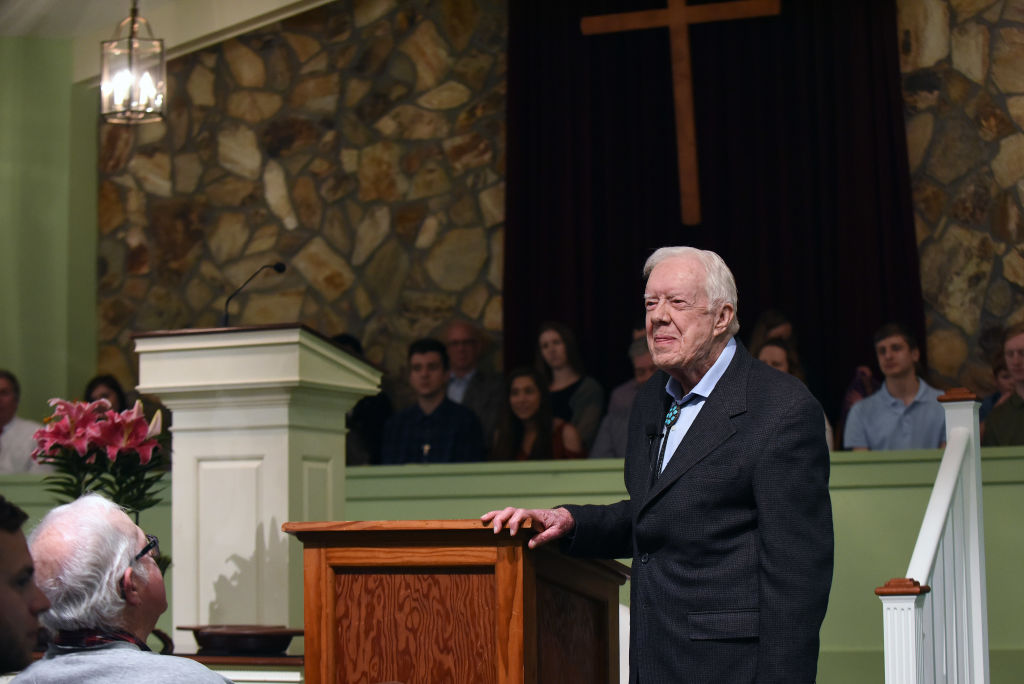
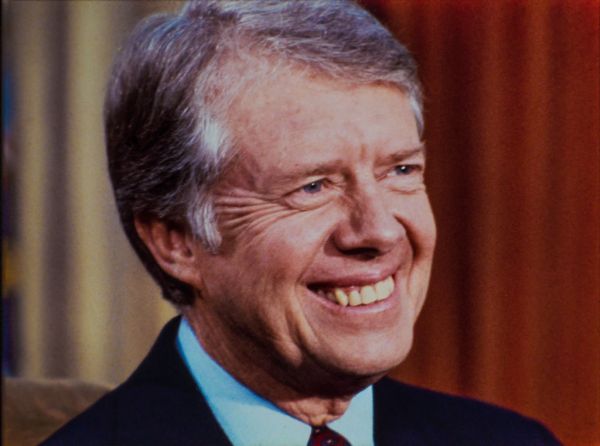
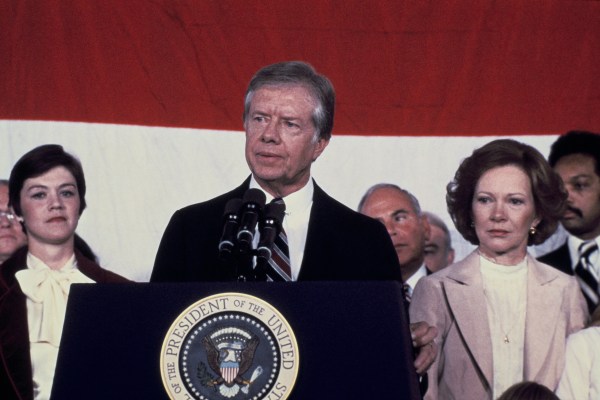
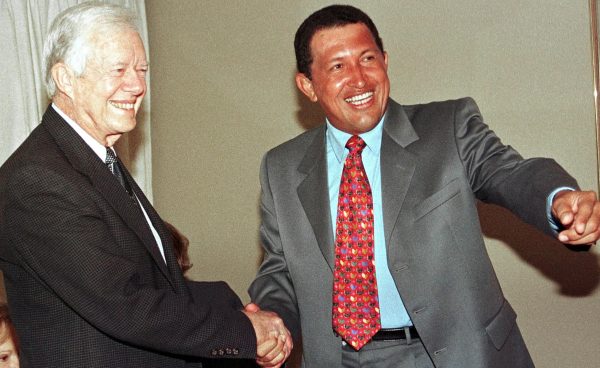
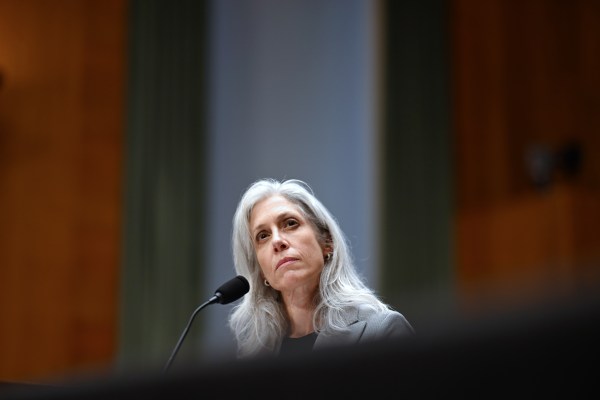
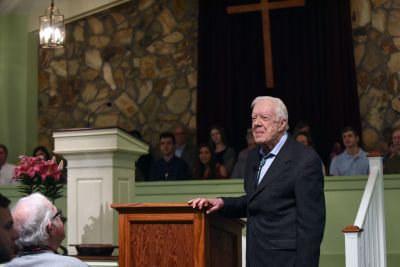
Please note that we at The Dispatch hold ourselves, our work, and our commenters to a higher standard than other places on the internet. We welcome comments that foster genuine debate or discussion—including comments critical of us or our work—but responses that include ad hominem attacks on fellow Dispatch members or are intended to stoke fear and anger may be moderated.
With your membership, you only have the ability to comment on The Morning Dispatch articles. Consider upgrading to join the conversation everywhere.